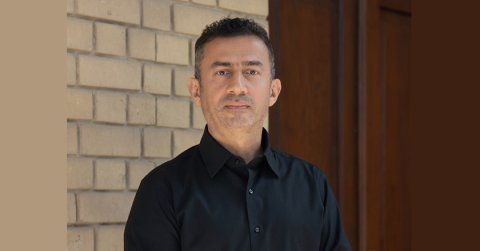
Bahaa Abdul Hadi, Chairman of International Smart Card, shares how the journey of Iraq’s fintech pioneer transforms lives — from biometric smart cards to a digital-first financial future.
International Smart Card (ISC), also known by its most popular product – Qi Card – has emerged as a force of digital disruption in Iraq and is making waves in foreign markets. Since its launch in 2007, International Smart Card has steadily redefined how millions of Iraqis access and use financial services. Spearheaded by visionary Chairman Bahaa Abdul Hadi, the company has evolved from rolling out the Middle East’s first biometric smart card – Qi Card – to launching SuperQi app, a cutting-edge digital wallet, a digital bank powered by global tech leader Ant International.
Hadi shares insights with Tahawultech.com on what lies ahead for fintech in Iraq and the wider MENA region.
Interview Excerpts:
Q: What have been the key milestones in International Smart Card ‘s journey since its inception in 2007, and how has it shaped the fintech landscape in Iraq and the broader Middle East?
Backed by its holding company International Smart Card, we launched Qi Card in 2007 as the region’s first biometric smart card, and within just two years, we reached 1.6 million users. By 2015, it was accepted by over 30,000 merchants, effectively turning government salaries into digital cash. During the pandemic, we surpassed 10 million users, ensuring uninterrupted payroll services in a time of severe crisis like the lockdown during Covid 19 pandemic. This year, we moved beyond plastic with the launch of SuperQi, our next-gen digital wallet, showing the world that Iraq can leapfrog into the future of fintech.
Q: How did International Smart Card overcome the initial challenges in deploying this innovation, and what impact has it had on the Iraqi government’s digital services?
Connectivity was limited, and PIN-based authentication was unfamiliar to many users. Our solution was to store an encrypted fingerprint directly on the card, enabling secure offline verification. This approach not only addressed issues of fraud and illiteracy but also empowered the government to pay salaries and benefits digitally to over seven million employees, pensioners, and social-security recipients, with near-zero leakage.
Q: The recently launched SuperQi app, in collaboration with Ant International, operates like a digital bank. What unique features does the app offer?
SuperQi allows users to open an account in minutes, send money via phone numbers, scan-to-pay both locally and internationally, access instant instalment loans, and manage bills — all in Arabic, English, or Kurdish. With Ant’s wallet technology, we’re blending local trust with global infrastructure. It’s a powerful example of how fintech can make finance inclusive and borderless – opens the gateways for the future of finance and open banking.
Q: How does International Smart Card plan to further expand its user base and stay ahead of rapidly evolving fintech trends in the region?
Our immediate focus is on moving our 11 million cardholders to SuperQi app and expanding the network of QR acceptance points. In 2025, we’re launching an open developer portal to accelerate fintech innovation on our platform.
“We expect to surpass 15 million active digital wallets by 2027.”
Q: How do you see fintech shaping economic growth and digital transformation in the region?
Instant salary access is one of the most powerful ways to advance financial inclusion. It brings liquidity into households when it’s most needed, reduces reliance on hard cash, and builds trust in digital systems. Fintech, at its best, should make money more accessible, more efficient, and more empowering — and that’s the future we’re committed to building in Iraq and taking it beyond borders.



